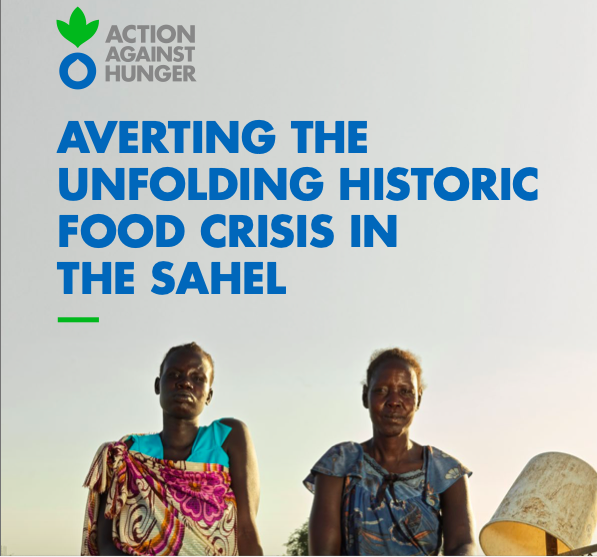The Sahel, Somalia Face Food Shortages In "Lean Season"
New Urgent Appeals For Increased Aid
24 Feb 2022 by The Water Diplomat
NEW YORK NY, United States

A US-based NGO, Action Against Hunger, has called for urgent global action to avert crisis in The Sahel where an estimated 35 million people face upcoming food insecurity during the annual “lean season” of June, July, and August.
A new report “Sahel: Averting Another Historic Food Crisis” identifies that the main drivers of the crisis are prolonged conflict, climate change and COVID-19.
An estimated 9 million across Burkina Faso, Chad, Mali, Mauritania, and Niger have been affected by conflict with local economic disruption, destruction of livelihoods and internal displacement. Climate change and its related extreme weather events has impacted land degradation and food production. COVID-19 restrictions have limited the movements herders to find water and pasture.
The potential crisis comes on the back of three consecutive years of growing regional disruption that has impacted about 15 million people in 2020, an estimated 21 million in 2021, and an estimated 27 million already in 2022.
Manuel Sánchez Montero, Action Against Hunger's director of advocacy and institutional relations appealed to representatives to the Feb 17-18 African Union-European Union Summit: "Action Against Hunger calls on the states participating in the Euro-African summit to not only increase the resources allocated to food security and essential goods for people in this region, but to advance this response now. If they don't, in a few months, millions more people will face a severe and life-threatening food crisis.”
Separately, UNICEF is seeking additional funding to meet the needs in Somalia where more than 1.4 million children are likely to suffer from acute malnutrition due to the ongoing drought that has affected 4.1 million people in Somalia.
Three consecutive seasons of failed rains in Somalia combined with ongoing conflicts in many parts of the country have left a quarter of the population needing immediate food assistance. Without urgent scaling up of assistance, the humanitarian situation among the urban and rural poor and displaced populations is expected to deteriorate further between now and June 2022.
The impact on pastoralist communities is especially dire. A critical shortage of water has forced families to migrate to urban and peri-urban centres in search of water for both human and livestock consumption, adding to the 2.9 million people who were already displaced by conflict and climate change. Since November 2021, water prices in some of the worst affected areas have risen by as much as 72 per cent.
Related Topics
5 Dec 2021 MOGADISHU, Somalia
Broad-based national consultation process towards the development of the NWRS and national priorities, conducted throughout 2020, involved government ministries, development partne...
